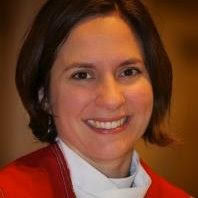“Do you set New Year’s Resolutions?”
My hairdresser asked me that question and I quickly said, “Not really, but I do have a word.”
This led to an interesting conversation about her word for the year (she had one too) and mine. This past year, my word was “fika.” It’s a Swedish word that means a coffee break but that doesn’t really capture the deeper meaning. Fika means “leaving your work behind and recharging your batteries.” In Sweden, it is a “must” for a healthy work-life balance.
When I first drew out this word from the basket in front of our congregation, I felt like I was cheating. What a great word! An invitation to relax?! But my teenage son looked at me after worship, shook his head, looked meaningfully into my eyes and said, “That’s a good word for you, Mom.” Clearly, I need more of this in my life. Every day, I’m learning better a specific cultural practice of taking time for relaxation and social connection.
Each month all year, my hairdresser asked me, “How’s your word going?” And I kept thinking as I gave my monthly update, “I can still do better.” I still want to give more attention to taking meaningful pauses from my work to care for myself and those with whom I work, as well as those at home.
The gentle art of Swedish death cleaning?
Apparently, this past year was my moment for learning from the Swedes because another practice that came my way was this one—the Gentle Art of Swedish Death Cleaning. Yes, you read that correctly—it’s cleaning and letting go of stuff in preparation for your death and/or after a loved one dies.
Many people have read the book by Margareta Magnusson but I began with the 8-episode series on Peacock. In it, an organizer, a designer, and a psychologist meet with willing individuals to manage their excess of belongings. In the process, each one said something like this, “I knew that you would help me organize my stuff but I didn’t know you would help me organize my soul.” There is clearly a connection between letting physical things go and making space to remember that you are loved for who you are, not for what you do or what you bring with you.
I have found that going through and letting go of stuff in my office has been very energizing. When do we take time for this? Seldom. Never. But there was a period this fall where I took 1-3 hours of every week to clean and clear. I had a lot of paper files from years ago, and I filled my recycling bin maybe 10 times. I took at least 5 boxes of books to the bookseller. I made $35 but the true gift was the worker saying, “You don’t have to take any of these books back.”
For those of us who were brought into ministry with lots of paperwork, it’s a bigger stretch than for those who have never been attached to paper, but I suspect there are digital equivalents. I faced the fact that most of the resources I use are available online, present in other people or within a much smaller collection of books and files. If you go into my office today, you might not notice the difference (I could still let go of more books …) but I know the weight that I’ve shed as I’ve let go of the part of the past that is no longer useful and made some space for what is now and what will be. There’s a new open-heartedness for what’s to come, even if I can’t see how the future will unfold.
When you’re tired … rest.
If there’s anything that living through a global pandemic taught me more deeply, it’s that ministry leaders have so much freedom to change our schedules. In the first days of the pandemic, I imagined that if we were going to be home for who knows how long, I would get so much painting and reading done. That was not how my version of pandemic life unfolded. I became busier than ever with tasks to safety-net our congregation’s well-being, and it only occurs to me in hindsight that I could have done that differently.
In ministry, we are willing to drop everything as needed to care for an urgent concern. We put others’ needs before our own needs regularly. We are not as willing to drop everything to care for our own health or to give ourselves the kind of space that is needed to do effective ministry for the long haul. Personally, I’d like someone to tell me that letting go is not just about being more productive for other people but an opportunity for me too. Letting go of productivity expectations can allow you to experience being loved for who you are. Isn’t that a word that so many of us need to hear, internalize and take to heart?
If we are experiencing a deep need for rest, we need to take time to rest. If we are very bad at resting, we need to find help. If we’re thinking, “Easier said than done.” Again, in that case, we need to find those who can help us creatively re-imagine our schedules with designated time for rest. We are not machines. We are humans and as part of God’s good creation, we are created with a need for rest. So this is an invitation for this new season … an invitation to let go and rest well. You are so very loved.



